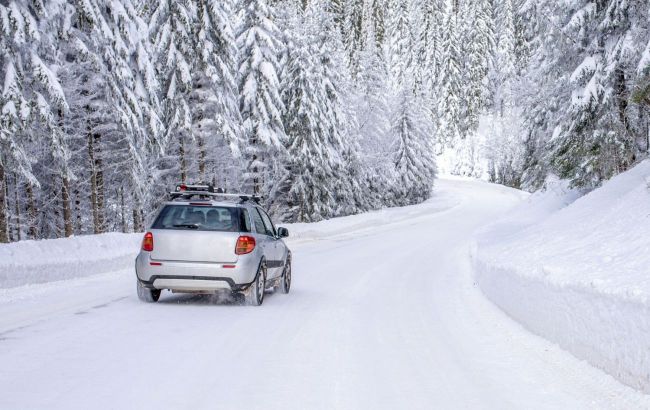5 lifesaving tips for winter driving
 What rules to follow on the road in winter (photo: Freepik)
What rules to follow on the road in winter (photo: Freepik)
During the winter season, road conditions can become treacherous, catching many drivers off guard. To safeguard against accidents, it's crucial to be aware of five essential rules for navigating your vehicle in frigid temperatures, advises The Sun publication.
What driving rules will help in winter
"Not all of us have been taught how to drive in the snow, so when winter comes around many of us aren’t prepared for a sudden bout of bad weather. The best thing you can do when the weather starts to become colder is to be as prepared as possible," the expert Sonia Hobbs states.
She recommends opting for a professional auto inspection to ensure your car's optimal safety for winter driving.
Additionally, she suggests stocking up on essential supplies for the engine and personally checking the battery and heating system.
Check your car before you go
One of the worst things that can happen to you in bad weather is finding yourself miles from home due to a car breakdown.
Checking tire pressure is vital, as cold temperatures can lead to faster deflation. Moreover, ensure that the car's battery is robust enough to withstand the added strain imposed by cold conditions.
Equip your car with "socks" or bracelets
"Snow socks are a great, much-easier-to-install alternative to clunky chains and winter tyres - they provide traction on snow and ice, making driving in the snow safer and easier," the expert says.
Wrapping a snow "sock" fabric around the tires can offer extra traction. However, in Ukraine, anti-slip bracelets for wheels, which are chain pads enhancing winter driving safety, are more commonly found. These sets cost around UAH 1,000,000.
Invest in new windshield wipers
They are necessary for a clear view of the road in all conditions. Regularly check the heating and cooling systems to efficiently eliminate snow, frost, or ice.
Keeping a consistent supply of glass-cleaning materials is essential.
Plan stops on long routes in advance
For long journeys, Hobbs recommends planning stops in advance to allow sufficient time between destinations. Many accidents occur due to haste, so giving yourself extra time is crucial.
"At the beginning of your day, make sure your car has enough time to warm up and always make sure to give yourself enough time between destinations. If this means adding an extra 15 minutes to your commute, it’s better to be safe than sorry," says the expert.
Stock up on essentials
Prepare for the unexpected by having essentials on hand. Always carry reflectors, extra warm clothes, an ice scraper, and tools for jumpstarting a dead battery in your vehicle.

